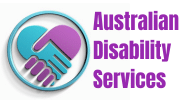What Are Common Speech Problems In Adults?

Ever fumble for words or feel like your brain and mouth aren’t on the same page? Speech problems can happen to anyone, even adults. Don’t worry, this isn’t some weird throwback to childhood.
This article is your chill guide to understanding speech problems in adults. It will provide information on the signs to watch out for, the sneaky culprits behind them, and most importantly, how to get your voice back in tip-top shape.
What are some signs of speech problems in adults?
Speech problems can creep up on anyone. But how do you know if your unique way of speakin’ needs a bit of a tune-up? Here’s the lowdown on some common signs:
- Word jumble wobbly: Struggling to string words together clearly? Does your speech sound a bit slurred, or maybe you just have trouble getting the sounds out altogether? This could be a sign of a speech problem.
- Stutter buddy: We all get a stutter sometimes, especially under pressure. But if it’s become your regular talkin’ style, it might be worth mentioning to your doctor.
- Slowpoke speech or speedy Gonzales: Is your speech super slow and drawn out, or maybe crazy fast and hard to understand? Neither is ideal.
- Voice going rogue: Notice your voice sounding hoarse, breathy, or just way off-key? That could be a speech issue.
- Tip-of-the-tongue tango: Ever have that feeling where the perfect word is just on the tip of your tongue, but you can’t quite grab it? This frustrating experience can be a sign of speech problems.
What causes speech problems to develop in adults?
Adults can sometimes run into speech issues, and it happens for all sorts of reasons. Here’s the lowdown on some common troublemakers:

- Brain stuff: Strokes, bumps on the head, and even things like Parkinson’s can mess with the parts of your brain that boss you’re speaking around.
- Muscle weakness: Conditions like Myasthenia Gravis or ALS can make using your voice feel like a workout.
- Voice gone rogue: Lumps or issues with your vocal cords can mess with how they vibrate, which means your voice might not sound quite right.
- Mind over matter (sometimes): Feeling anxious or down can mess with your speech, making it trickier to talk clearly.
- Hearing yourself out: Can’t hear yourself well? Kinda tough to fix your voice if you can’t tell what’s going on, right?
Should you be worried about speech problems in adults?
We all get a scratchy throat sometimes, especially when a nasty cold rolls in. But what about speech problems that stick around for a while? While a temporary croak is probably nothing to fret about, some speech issues can signal something more serious.
Here’s when you might wanna chat with your doctor:
- Speech changes outta nowhere: Did your voice suddenly go from smooth sailing to slurred city? That rapid shift deserves a doc visit.
- Double whammy of weirdness: Is your speech wonky alongside some other strange stuff like a droopy face, uncontrollable drooling, or difficulty swallowing? Don’t ignore this combo, get it checked out.
- Communication breakdown: Is your speech making everyday conversations a struggle? If your social life or daily tasks are getting wrecked because you can’t speak clearly, it’s time to see a professional.
Remember, early detection is key! The sooner you see a doctor, the sooner you can get on the road to tackling the problem and getting your voice back to its best.
Can speech problems in adults be improved?
Absolutely! it’s actually pretty common. In most cases, with some figuring out what’s going on (diagnosis) and some practice with a speech therapist, things can get way better, sometimes even perfect! The important thing is to jump on it early and team up with a therapist to create a plan that fits you.

How can speech problems in adults be treated?
The good news is, there are ways to boss around those speech problems. The best approach depends on what’s causing them, but here are some common treatments:
- Speech therapist superhero: These speech wizards can teach you exercises to improve your speaking, fluency, and overall communication skills.
- Meds to the rescue: Sometimes, medication might be needed to address the underlying cause, like for neurological conditions.
- Tame that voice: Learning how to use your voice properly and avoid straining it can make a big difference.
- Tech tools: In severe cases, special devices can help you communicate more effectively.
Living with speech problems in adults
Dealing with speech stuff can be a drag, but don’t sweat it! There are ways to keep those awesome conversations going. Here’s the lowdown:
- Chill with the speed and clarity: Take your time talking, enunciate those words, and keep your sentences short and sweet.
- Find a quiet zone: Background noise can make things tricky, so find a calm spot to chat.
- Squad up: Support groups are like your tribe – people who get what you’re going through and can offer a listening ear.
Conclusion
Totally get it – speech troubles can be a real pain, like a constant voice-blocker. But hey, they don’t gotta hold you back from chatting with people! With a little help and some cool communication hacks, you can totally get your speaking skills back in top form and keep on rocking life!
Call to action
For our Aussie mates: If you’re dealing with speech problems and live in Australia, you’ve got options! Here at Australian Disability Services, we have a fantastic team of experienced speech pathologists who can help.
We understand the challenges of speech problems and can create a personalised therapy plan to address your specific needs. Our therapists use all sorts of tricks to get your communication on point, whether it’s fluency, speaking clearly, or just keeping your voice healthy.
Don’t wait to get the support you deserve. Contact us today for a free consultation! We can even help you sort out the NDIS stuff so you can access our speech therapy with no worries.
Let’s work together to make sure your voice is heard loud and proud!

